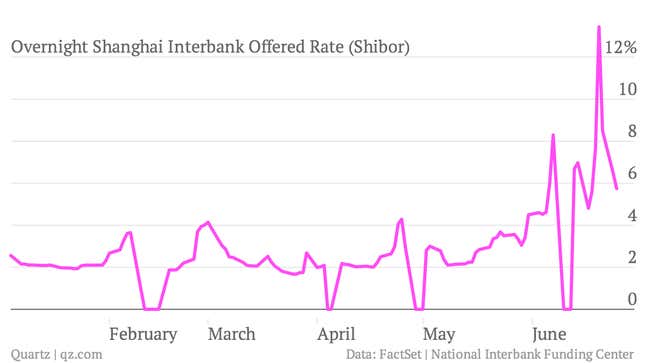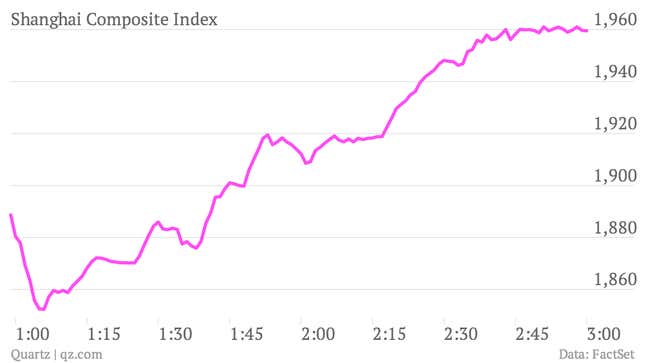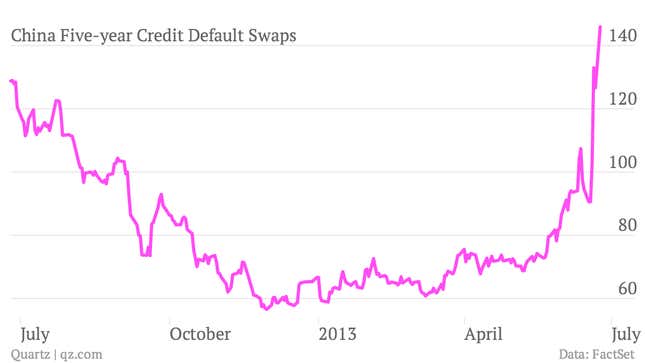Chinese stocks pared their losses today, as hopes grew that the government might ease up on its recent tight money policy. While the intent of People’s Bank of China is less than crystal clear, the policy seems aimed at getting China’s somewhat reckless banking system to act a bit more prudently. How? By restricting access to cheap inter-bank loans that were funding a huge expansion in risky things like “wealth management products.”
Restrictive liquidity from the central bank has driven key short-term borrowing rates sharply higher over the last week. But some of those measures have eased a bit over the last couple of days. Here’s the overnight Shanghai Interbank Offered Rate, which spiked to more than 13% a couple days back. It’s back down below 6% today.

Still, Chinese stocks started down in what looked to be another ugly day. Out of the gates, the Shanghai Composite fell below 1850, its lowest level since late 2008. Things then spun around on commentary from a PBOC official in Shanghai who said that the liquidity squeeze was caused by seasonal factors and would likely fade.

China’s showdown with its banking system has also raised concerns more broadly about how well the People’s Republic can manage its economy going forward. Prices for default insurance on Chinese government bonds has risen sharply in recent days.
